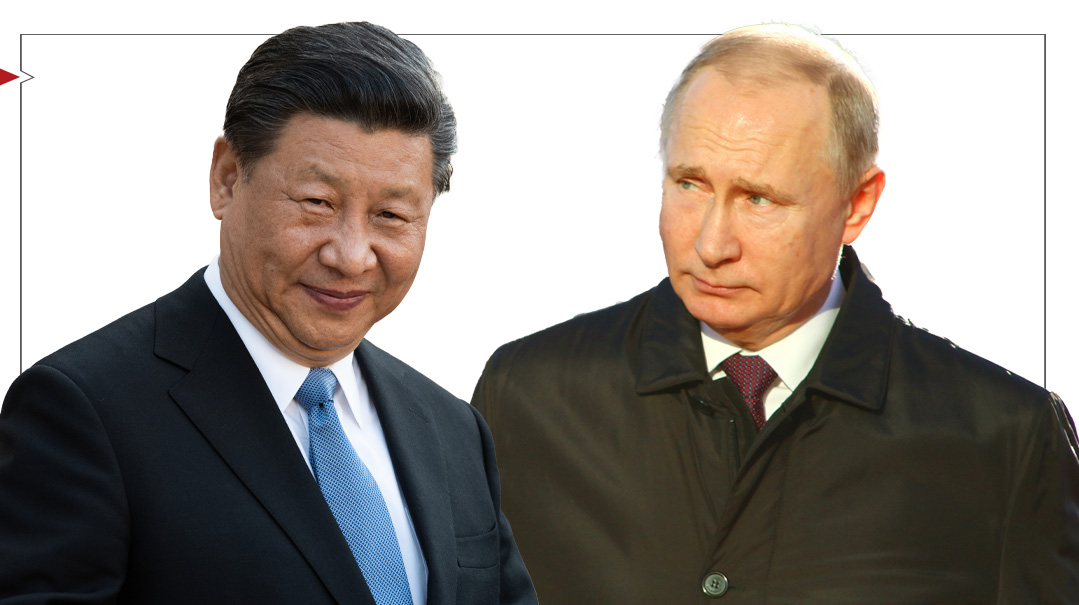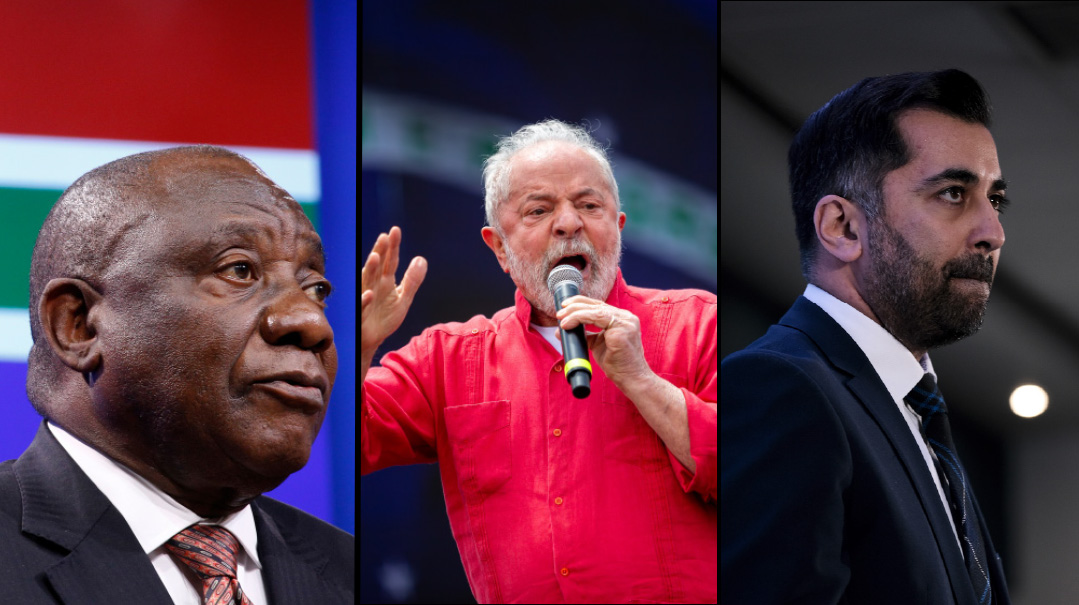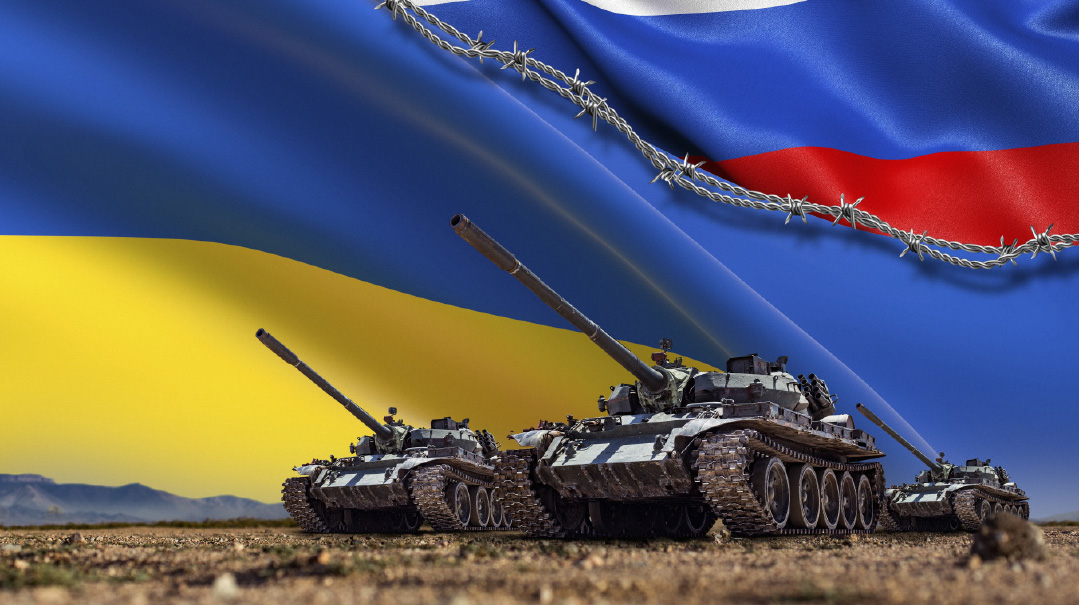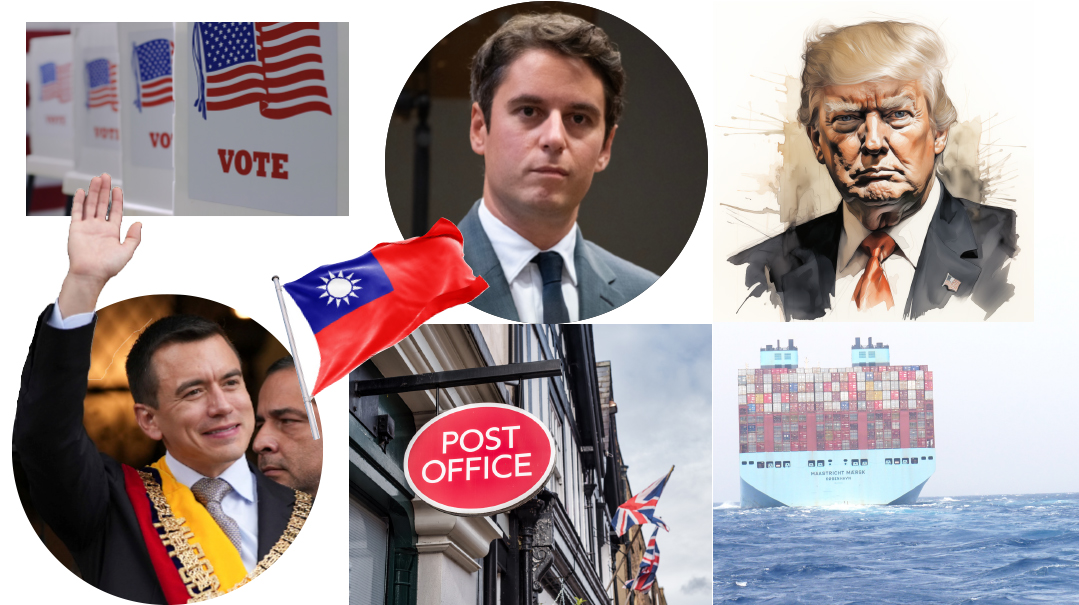Putin Goes to China

Five unreported stories from the Russia-Ukraine conflict

The fog of war blankets Ukraine as Vladimir Putin’s forces level whole neighborhoods in a bid to overcome the Ukrainians’ brave resistance. But as the future of the conflict and on-off peace negotiations remain unclear, elements of the postwar political horizon are emerging. Here are five underreported stories.
1 Bear Hug
Richard Nixon’s 1972 visit to China was a diplomatic coup, detaching the Communist giant from Soviet Russia’s orbit, leaving America free to face a weakened Moscow.
Fifty years later, the Ukraine war has reversed that process. Putin’s Russia — already a junior partner in its alliance with Beijing — has irrevocably broken with the West and thrown in its lot with the Chinese.
Both the White House and European Union say they have evidence that China is considering supplying weapons to Russian, as well as backing the country economically as Western sanctions bite deep.
Whether China chooses to rearm the Russians or not, the reversion to Cold War alignments is complete.
2 Beijing View
What lessons will Chinese strategists be learning from Russia’s failure to subdue Ukraine?
Beijing’s saber rattling across the Taiwan Straits in recent months has prompted calls for the island nation to adopt a “porcupine strategy.” That approach would see America arm its ally with large numbers of antiaircraft and anti-ship missiles to make an amphibious invasion prohibitively expensive.
The viability of that strategy has been proven by Ukrainian forces. China might also have been given pause by unexpected Western unity on behalf of Ukraine. Is the Chinese public ready to pay for Taiwan in body bags? Xi can’t be so sure anymore.
3 Ignoring America
The triumphant talk of Western cohesion that has flooded the op-ed pages since Russia’s invasion ignores a worrying trend: Major American allies aren’t on board. India — the world’s largest democracy — has conspicuously stayed on the sidelines. With Russia a major presence on Israel’s Syrian border, the Bennett government has ignored Western calls to supply Ukraine with arms. In a pointed reminder that the US is not seen as a reliable ally post-Afghanistan, the UAE hosted Syria’s Assad last week, much to the State Department’s displeasure. Putin’s invasion has concentrated democratic minds, but Western influence isn’t what it was.
4 Biden Bounce
To go from comedian to international statesman in a week as Ukraine’s Zelensky has, you need to defy death at the hands of an invader. But even politicians further from the action can have a good war. Just weeks ago, Boris Johnson was on the ropes after revelations of lockdown-busting parties in Downing Street. Boris’s leadership over Ukraine means that the chances that he’ll be evicted by his own party are now nil.
Another beneficiary of the Ukraine effect has been Joe Biden, who’s seen a 4 percent uptick in support last week to 45 percent according to a Politico poll, likely due to his steady handling of the crisis. Not great numbers ahead of the November midterms, but not as bad as two weeks ago.
5 Wandering Jews
The intense focus on Ukraine’s refugees has obscured another dramatic aspect of the war: the threat to the Russian Jewish future.
“Along with many Russians, Jews are getting out to anywhere that they can,” says a contact familiar with the situation. “The ruble’s collapse, plus the threat of a draft and sanctions on Russia have scared many people.”
Many assume that their phone lines are tapped, and Russian Jewish leaders are keeping a low profile. As a new Iron Curtain descends across Eastern Europe, Russia’s post-Soviet Jewish community, estimated at 180,000 strong, is anxious not to be trapped on the wrong side.
Torah World

As I write these words, I’m sitting in a car on the outskirts of Bnei Brak, a city whose entrances have been sealed in preparation for possibly the largest public event in Israel’s history — the levayah of Hagaon Rav Chaim Kanievsky ztz”l.
Much will be written on the gadol himself, but one take about the size of the crowd. Estimates of a million people in attendance mean that over one in seven Israeli Jews — from chareidim to traditionally observant — are taking part united in grief for the loss of the tzaddik.
That in turn, says something about the state of the country that the Pinsk-born gadol leaves behind. After all the battles for Torah observance and protecting the yeshivah bochurim that occupied his public activity, Torah has put down roots in Israel in a way that would have seemed inconceivable when the Steipler’s son first arrived in Mandate Era Palestine as a six-year-old in 1934.
Twin Cities
“Tammy and I join our Jewish community in mourning the loss of Rabbi Chaim Kanievsky, who dedicated his life to the Torah and his faith. May his memory be a blessing.”
New Jersey governor Phil Murphy’s tweet was good politics for a leader whose constituency includes Lakewood, where Rav Chaim’s passing is widely felt.
What the governor didn’t mention is that Bnei Brak and Lakewood have been twinned since 2011.
On the face of it, Bnei Brak — the fourth most densely populated city in the world — and sprawling, spacious Lakewood couldn’t be more different. But they also face similar challenges: both began as pure yeshivah towns, and now face the challenge of retaining that identity along with the growth of a burgeoning business sector.
Old Debts

Regardless of settling accounts, the British deal was yet another sign of the desperate lengths that the West is prepared to go to in order to bring Iran back to the table. Likewise, the US will release billions in frozen Iranian cash that Tehran will then be free to spend on its proxies in their war against Israel.
(Originally featured in Mishpacha, Issue 904)
Oops! We could not locate your form.







